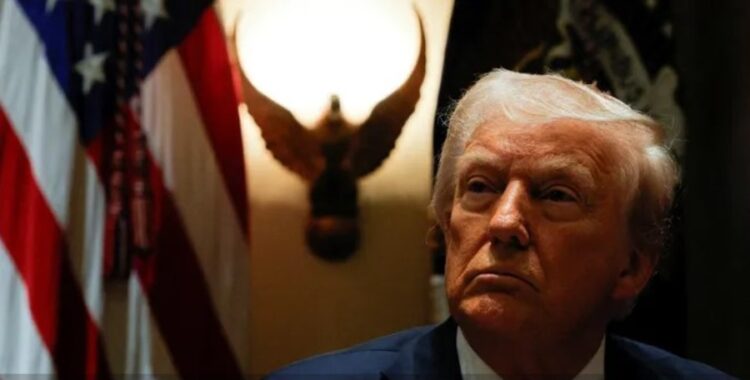A second federal judge has struck down the Trump administration’s bold attempt to freeze trillions in federal funding, delivering a sharp rebuke to the former president’s efforts to reshape national spending priorities through executive fiat.
U.S. District Judge John McConnell of Rhode Island issued a nationwide preliminary injunction Thursday, halting a policy that would have paused up to $3 trillion in federal grants, loans, and assistance programs. The decision echoes a February 25 ruling by U.S. District Judge Loren AliKhan in Washington, D.C., who also blocked the freeze, labeling it an unconstitutional overstep.
The legal saga began January 27 when the White House Office of Management and Budget (OMB) directed agencies to suspend all financial assistance programs for review against Trump’s executive orders targeting diversity initiatives and climate spending. Though the OMB later withdrew the memo amid lawsuits, White House Press Secretary Karoline Leavitt insisted on X: “This is NOT a rescission of the federal funding freeze. It is simply a rescission of the OMB memo.”
That ambiguity fueled action from 22 Democratic-led states, the District of Columbia, and Kentucky Governor Andy Beshear (D), who argued the policy persisted in spirit. Judge McConnell sided with them, writing in his 49-page ruling: “The Executive’s blanket freeze of appropriated funds subverts the constitutional separation of powers. No authority justifies this overreach.”
Programs at Risk
The freeze imperiled several initiatives, including solar grants for low-income households, child care subsidies, law enforcement funding, and university research. States submitted over 50 declarations detailing “immediate, concrete, and irreparable harm,” such as delayed services and economic disruption. McConnell cited these impacts as grounds for the injunction.
Constitutional Clash
At its core, the ruling reaffirms Congress’s control over federal spending. While the executive can manage funds, it cannot unilaterally suspend appropriations—a principle McConnell underscored. Rhode Island Attorney General Peter Neronha hailed the decision, declaring, “We don’t have kings in this country.” New York Attorney General Letitia James called the freeze “destructive and unconstitutional,” warning of its toll on vulnerable communities.
The administration, undeterred, plans to appeal after failing to stay McConnell’s earlier January 31 restraining order. Meanwhile, related lawsuits—from nonprofits, small businesses, and Pennsylvania Governor Josh Shapiro (D)—signal a mounting legal offensive against Trump’s funding maneuvers.
Thursday’s injunction bars any categorical funding pause unless overturned. Agencies can still review programs individually under existing laws, but for now, states and organizations reliant on federal dollars can breathe easier. As the battle heads to higher courts, the clash over executive power promises to intensify.










